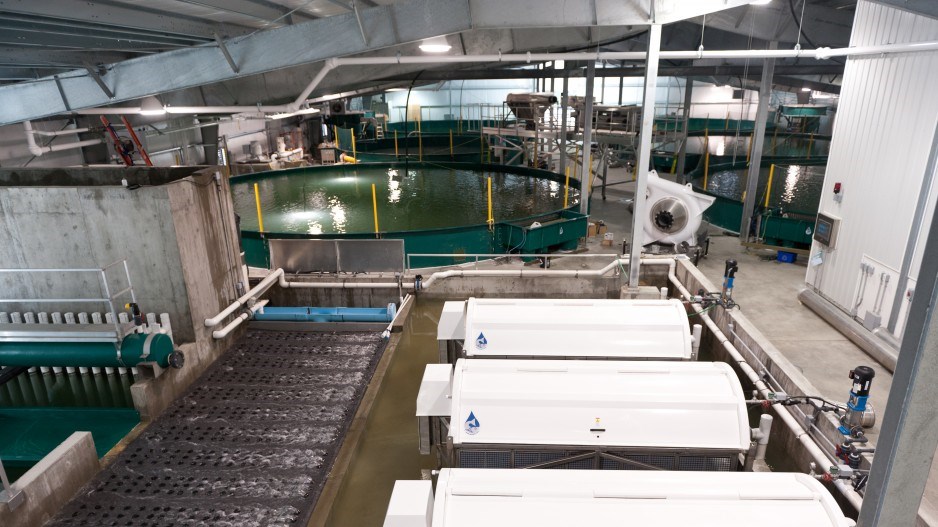An American fish farming company has signed a 15-year lease with the Namgis First Nation to operate the Kuterra land-based salmon farm near Port McNeill.
Emergent Holdings, the parent company of Whole Oceans, announced today, December 20, that it has signed a 15-year lease to continue operating the land-based salmon farm. The company also revealed for the first time that it has already been managing the operations for about a year now.
“This will be a smooth transition as Emergent Holdings and Whole Oceans have been financially and operationally managing the facility for the past year,” Whole Oceans CEO Jacob Bartlett said in a press release. “Emergent Holdings and Whole Oceans look to bring advancements in technology to Kuterra to make it more effective, productive and stable.”
Earlier this year, Emergent Holdings offered to become a major shareholder and expand the operation. But the Namgis First Nation, who own the fish farm, rejected the offer in July.
Whole Oceans is currently building a new land-based fish farm in Bucksport, Maine. The plan now is to operate the fish farm on a lease basis.
“Given Kuterra’s successful proof of concept along with experienced staff, Whole Oceans stands to gain valuable insights and synergies to advance the company’s workforce training and will also benefit from the technological and marketing expertise of Kuterra," Bartlett said.
One of the problems with Kuterra is that its production capacity is too small to be profitable. It was built more as a demonstration project, mostly with public money.
The project’s original capital cost was $8.8 million, but ended up costing $10 million. Canadian taxpayers covered close to half of those costs. The Government of Canada invested $6 million in the project – $5 million from Sustainable Development Technology Canada and $1 million from other federal agencies, including Fisheries and Oceans Canada.
Tides Canada and the Gordon and Betty Moore Foundation provided $4 million through the Sustainable Aquaculture Innovation Fund. Another $1 million came from private donors. The Namgis covered operating costs totalling about $4.5 million – $1.5 million in equity and $3 million in loans.
The project was considered a success as a proof on concept, since it proved the technology could work. While Kuterra has said the operations are at the break-even point, to be make a profit it would likely need to expand its production capacity.
It’s not clear whether Emergent still plans to expand the Kuterra operations under a lease agreement.
"Basically, we can't really comment on any expansion plans at this point," Emergent Holdings spokesperson Angie Helton told Business in Vancouver.
A number of companies have been investing in large RAS systems in places like Maine and Florida. In B.C., one of the barriers to investment may be that the higher cost RAS systems simply can’t compete with open-net salmon farms.
But the Trudeau government now plans to eliminate the competition within five years.
Fulfilling a campaign promise to phase out open net salmon farms in B.C. by 2025, Prime Minister Trudeau recently gave Canada’s new Fisheries and Oceans Minister, Bernadette Jordan, her marching orders.
In a mandate letter to Jordan, Trudeau has directed her to work with the B.C. government to phase out all open-net salmon farms in B.C. by 2025. B.C. has offered no objections to that plan.
No such mandate is given to Jordan with respect to salmon farms in Eastern Canada.




